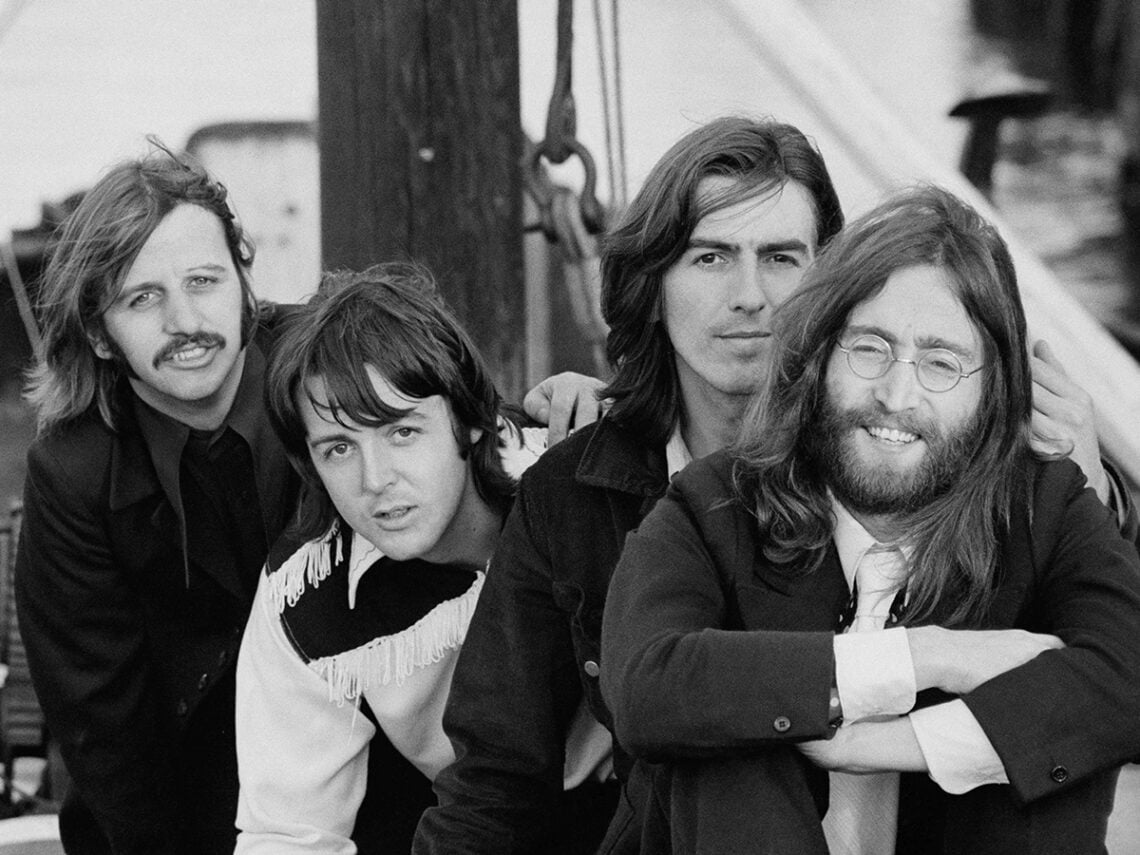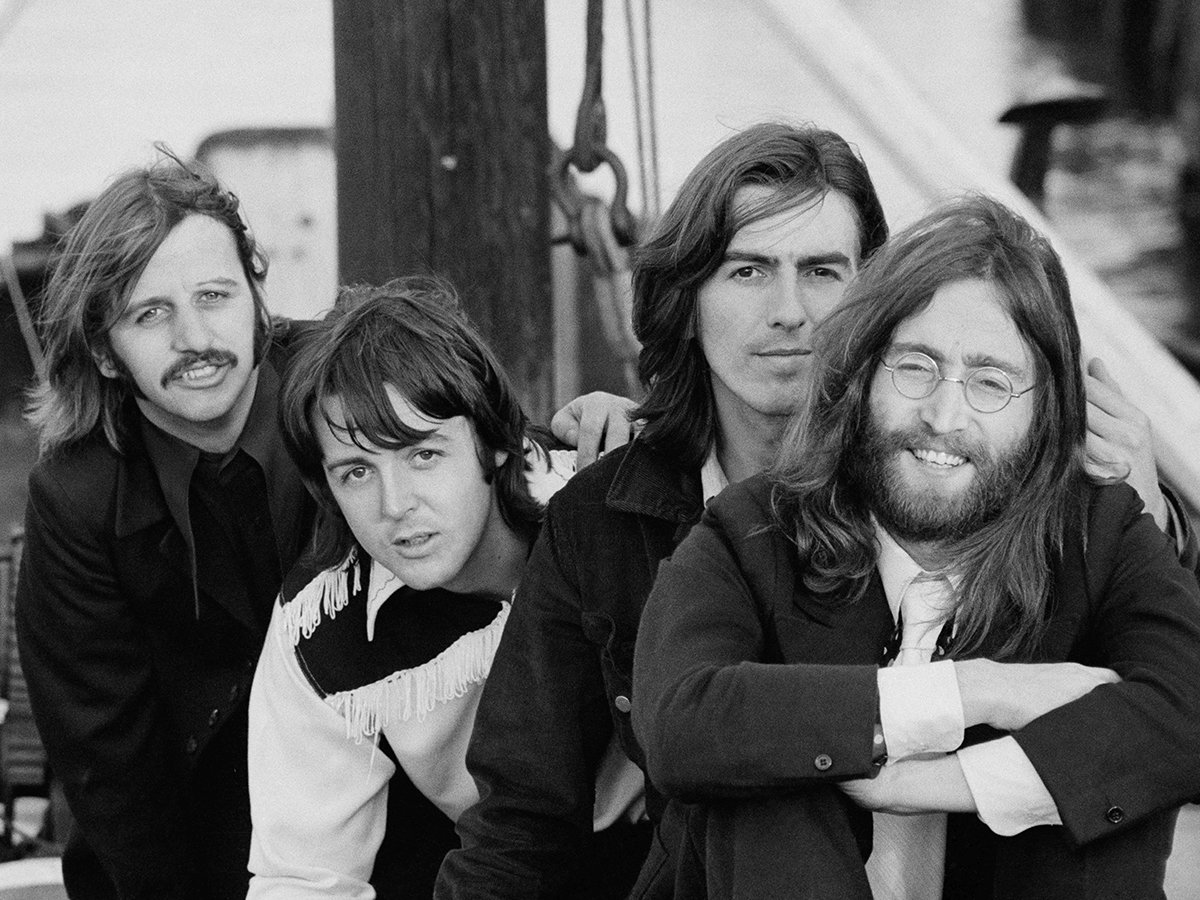
(Credits: Bruce McBroom / Apple Corps LTD)
Mon 22 September 2025 21:00, UK
The original superstar producer is undoubtedly George Martin. Long before Rick Rubin sat barefoot in press shots for Shangri La studios and DJ Khaled was tagging whatever trashy hit he had just penned with an exclamation of his name, Martin was truly exposing the role of a great producer, with his timeless work with The Beatles.
He was considered the straight-laced school teacher appropriate to bring the best out of these mischievous, creative children, providing them with a structure to inject their endless creation of ideas. But he wasn’t an ideas producer as much as he was a technician. History has rightly taught us that John Lennon and Paul McCartney were the beating heart of the band’s creativity, but Martin was crucial in bringing those ideas to a concise finish. He understood musical theory while encouraging evolution, becoming the quiet yet important guardian of music’s most groundbreaking band.
“He’s one of the most important men in my life, and that’s including my father, my brother, The Beatles,” McCartney explained.
He added, ”George Martin is right up there in the top five. Really, I would like to work with him forever. That would be my dream.”
With every passing year in the 1960s, he would introduce a new technique, to help bring the boys’ visions to life, creating a healthy stockpile of theoretical knowledge to back their undoubted catalogue of esoteric ideas. But their increased wealth of knowledge, combined with the aching pains of their maturing creativity meant the dynamic soon became different to what it once was. Martin’s stewardship was arguably becoming redundant in a studio space where a collection of truly accomplished artists were clashing.
It was time for Martin and all of The Beatles to take their bulletproof arsenal of creative skills elsewhere. In doing so, they could either work with new producers or, perhaps more excitingly, take the helm of an album production, using the wealth of knowledge crafted under the teaching of Martin.
Did The Beatles ever produce albums for other artists?
During the 1960s, the band churned out record after record, prolifically laying down ideas with their help of their own producer George Martin. But the ever-curious artists they were, as the years rolled on and their knowledge expanded, they used opportunities afforded to them by a lack of touring and company management to dip their toes into the world of production.
In 1968, the band founded Apple Records, which took on the responsibility of releasing music for the likes of Badfinger, Mark Hopkin and James Taylor. But soon after starting the label, McCartney decided to get more hands on, producing Mary Hopkin’s debut album Postcard and Badfinger’s debut Magic Christian Music, while Harrison later produced Badfinger’s 1971 effort Straight Up.
Straight Up would have provided Harrison with a welcome distraction after the band’s split in 1970, but when the dust finally settled, Harrison decided to practice his more understated producer role in more familiar pastures. Rather than focus on the next up-and-coming talent, it was for his former bandmate Ringo Starr. Harrison produced his 1973 album Ringo, which ironically featured individual contributions from Lennon and McCartney on separate tracks.
Related Topics
The Far Out Beatles Newsletter
All the latest stories about The Beatles from the independent voice of culture.
Straight to your inbox.

